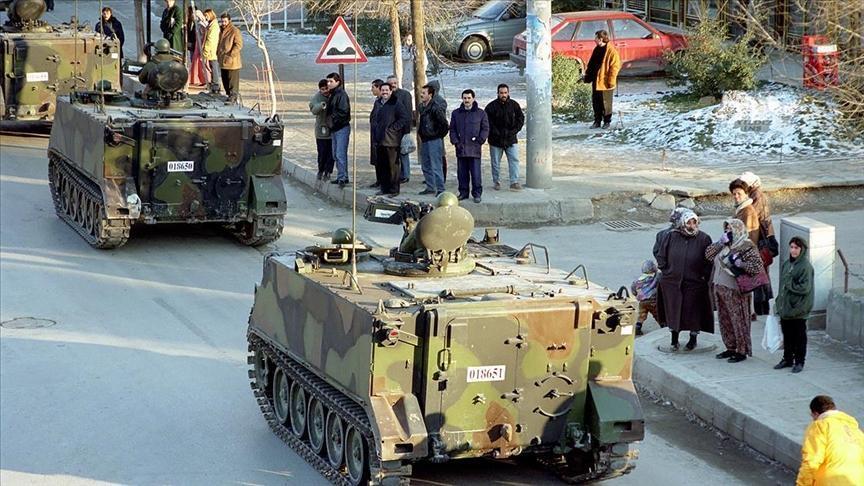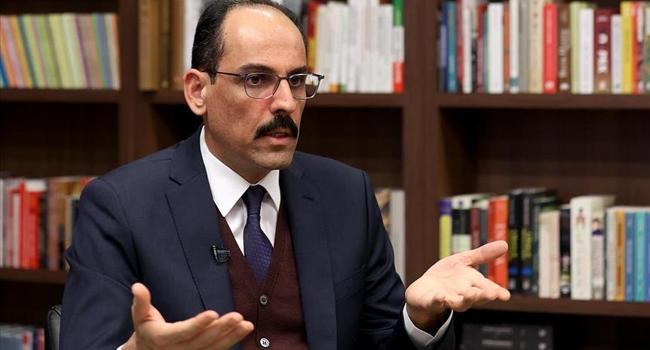Turkish officials recall ‘post-modern coup’
ISTANBUL

As agonizing memories of the “post-modern” coup of Feb. 28, 1997, still lingers and has its effect on the country’s conscience 24 years later, Turkish officials have condemned the intervention of a democratic order that led to the resignation of the then prime minister, Necmettin Erbakan.
President Recep Tayyip Erdoğan posted a video message from his social media accounts on the anniversary of the Feb. 28, 1997, post-modern coup.
“I was the mayor of Istanbul during the Feb. 28, 1997 period. I was unlawfully imprisoned for a poem I read, and my political life was being forced to end,” Erdoğan said in a video message, recalling that he is now serving as the first president elected by popular vote.
Noting that he has been serving the nation with glory and honor despite all kinds of obstacles, Erdoğan said that the coup was a crime against humanity.
Turkey’s presidential spokesperson, İbrahim Kalın, has described the date Feb. 28, 1997, as an assault on democracy and the people’s will by advocates of the tutelary regime.
“Like other coups in Turkey, it was executed by a mindset that advocated the suspension of democracy and ignoring the people’s will,” Kalın said on the anniversary of the “postmodern coup.”
Coups undermined Turkey’s political, economic growth: Presidential spokesperson

“Whatever form they took, every coup undermined Turkey by deterring its economic and political progress. The fortunate thing is that the Turkish nation responded strongly to these coups, expressing its own power and wisdom,” he added.
Turkey’s Director of Communications, Fahrettin Altun, recalled the day of Feb. 28, 1997, as another name for the witch hunt launched against a large part of the society.
“Feb. 28 is an anti-democratic and immoral process that aims to exclude an important part of the society, from education to health, from trade to culture,” Altun tweeted.
On Feb. 28, 1997, Turkey’s National Security Council (NSC) held an emergency meeting that lasted almost nine hours, the longest-ever single session in the NSC’s history.
The meeting produced what would come to be known as the “February 28 Memorandum,” which contained a list of resolutions by the Turkish military taken in response to what it deemed “rising Islamist ideology.”
The military then forced Erbakan to sign a slew of decrees, including a ban on headscarves, the shutting down of Quran schools, and the implementation of measures aimed at giving the military control over news media.
Erbakan and his entire government resigned on June 18, 1997.

















